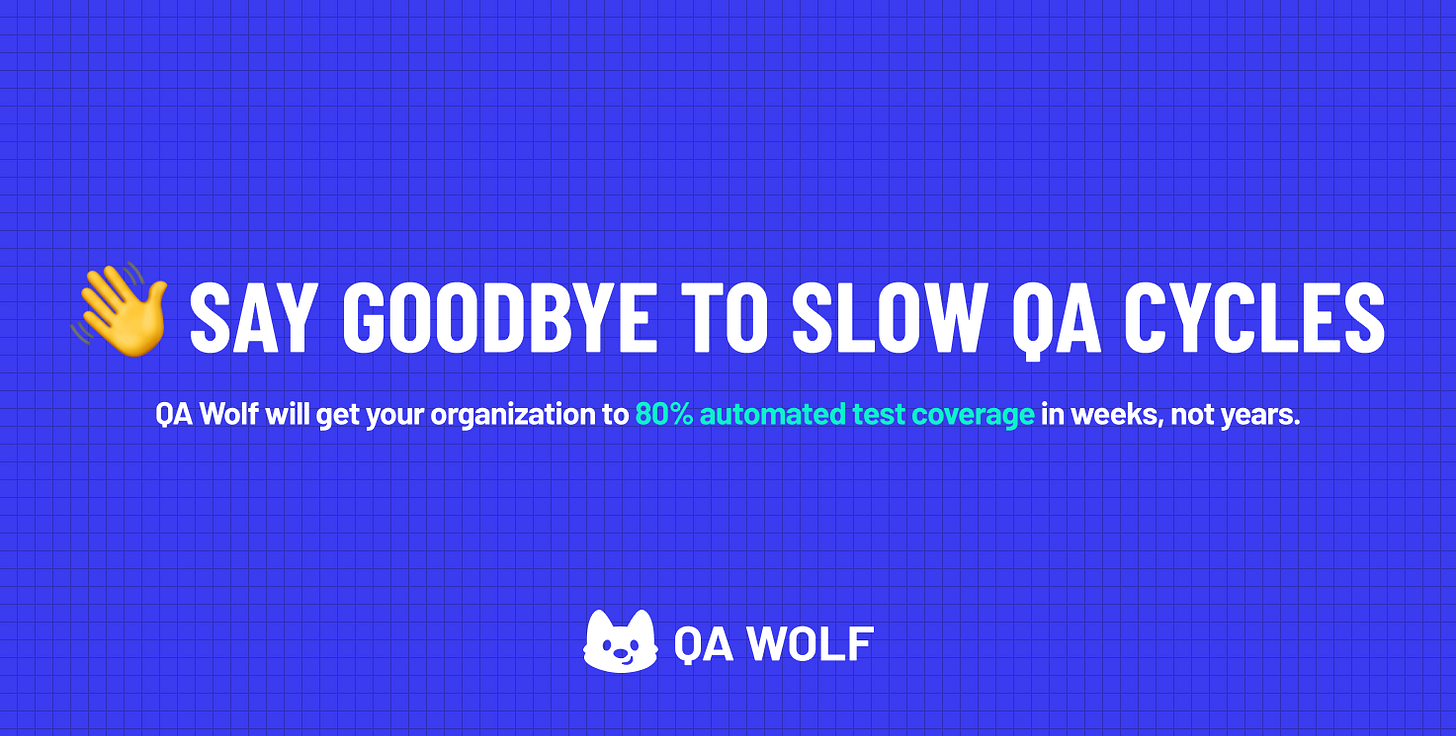EP120: What do version numbers mean?
This week’s system design refresher:
Concurrency Vs Parallelism! (Youtube video)
What do version numbers mean?
Looking for a Job? This Free AI Tool Can Get You More Interviews!
Cybersecurity 101 in one picture
What is k8s (Kubernetes)?
SPONSOR US
✂️Cut your QA cycles down to minutes with automated testing (Sponsored)
Are slow test cycles bottlenecking your dev teams’ release velocity? With QA Wolf, your organization can run entire test suites in minutes for faster feedback and developer confidence to ship.
QA Wolf takes testing off your plate. They can get you:
80% automated test coverage in weeks—not years
24-hour maintenance and on-demand test creation
Zero flakes, guaranteed
The benefit? No more manual E2E testing. No more slow QA cycles. No more bugs reaching production.
With QA Wolf, Drata’s team of 80+ engineers achieved 4x more test cases and 86% faster QA cycles.
🌟Rated 4.8/5 on G2
Concurrency Vs Parallelism!
What do version numbers mean?
Semantic Versioning (SemVer) is a versioning scheme for software that aims to convey meaning about the underlying changes in a release.
SemVer uses a three-part version number: MAJOR.MINOR.PATCH.
MAJOR version: Incremented when there are incompatible API changes.
MINOR version: Incremented when functionality is added in a backward-compatible manner.
PATCH version: Incremented when backward-compatible bug fixes are made.
Example Workflow
1 - Initial Development Phase
Start with version 0.1.0.
2 - First Stable Release
Reach a stable release: 1.0.0.
3 - Subsequent Changes
Patch Release: A bug fix is needed for 1.0.0. Update to 1.0.1.
Minor Release: A new, backward-compatible feature is added to 1.0.3. Update to 1.1.0.
Major Release: A significant change that is not backward-compatible is introduced in 1.2.2. Update to 2.0.0.
4 - Special Versions and Pre-releases
Pre-release Versions: 1.0.0-alpha, 1.0.0-beta, 1.0.0-rc.1.
Build Metadata: 1.0.0+20130313144700.
Latest articles
If you’re not a paid subscriber, here’s what you missed.
To receive all the full articles and support ByteByteGo, consider subscribing:
Looking for a Job? This Free AI Tool Can Get You More Interviews!
If you're looking for a job, you should check this out.
My good friend Eric Cheng and his team have built a fantastic AI tool called Jobright.ai that makes your job search much easier.
Here are some great features I wish I had when I was job hunting
Aggregates all jobs in one place (8 million in total / 400K new jobs daily)
Match you with the right opportunities where you are a standout candidate
Create customized resumes for each job in seconds.
Automatically suggest past colleagues or alumni who can help with referrals.
It's completely free right now
Cybersecurity 101 in one picture
Introduction to Cybersecurity
The CIA Triad
Common Cybersecurity Threats
Basic Defense Mechanisms
To combat these threats, several basic defense mechanisms are employed:Firewalls: Network security devices that monitor and control incoming and outgoing network traffic.
Antivirus Software: Programs designed to detect and remove malware.
Encryption: The process of converting information into a code to prevent unauthorized access.
Cybersecurity Frameworks
What is k8s (Kubernetes)?
k8s is a container orchestration system. It is used for container deployment and management. Its design is greatly impacted by Google’s internal system Borg.
A k8s cluster consists of a set of worker machines, called nodes, that run containerized applications. Every cluster has at least one worker node.
The worker node(s) host the Pods that are the components of the application workload. The control plane manages the worker nodes and the Pods in the cluster. In production environments, the control plane usually runs across multiple computers and a cluster usually runs multiple nodes, providing fault-tolerance and high availability.
Control Plane Components
1. API Server
The API server talks to all the components in the k8s cluster. All the operations on pods are executed by talking to the API server.
2. Scheduler
The scheduler watches the workloads on pods and assigns loads on newly created pods.
3. Controller Manager
The controller manager runs the controllers, including Node Controller, Job Controller, EndpointSlice Controller, and ServiceAccount Controller.
4. etcd
etcd is a key-value store used as Kubernetes' backing store for all cluster data.\Nodes
1. Pods
A pod is a group of containers and is the smallest unit that k8s administers. Pods have a single IP address applied to every container within the pod.
2. Kubelet
An agent that runs on each node in the cluster. It ensures containers are running in a Pod.
3. Kube Proxy
kube-proxy is a network proxy that runs on each node in your cluster. It routes traffic coming into a node from the service. It forwards requests for work to the correct containers.
SPONSOR US
Get your product in front of more than 500,000 tech professionals.
Our newsletter puts your products and services directly in front of an audience that matters - hundreds of thousands of engineering leaders and senior engineers - who have influence over significant tech decisions and big purchases.
Space Fills Up Fast - Reserve Today
Ad spots typically sell out about 4 weeks in advance. To ensure your ad reaches this influential audience, reserve your space now by emailing hi@bytebytego.com








Thanks.